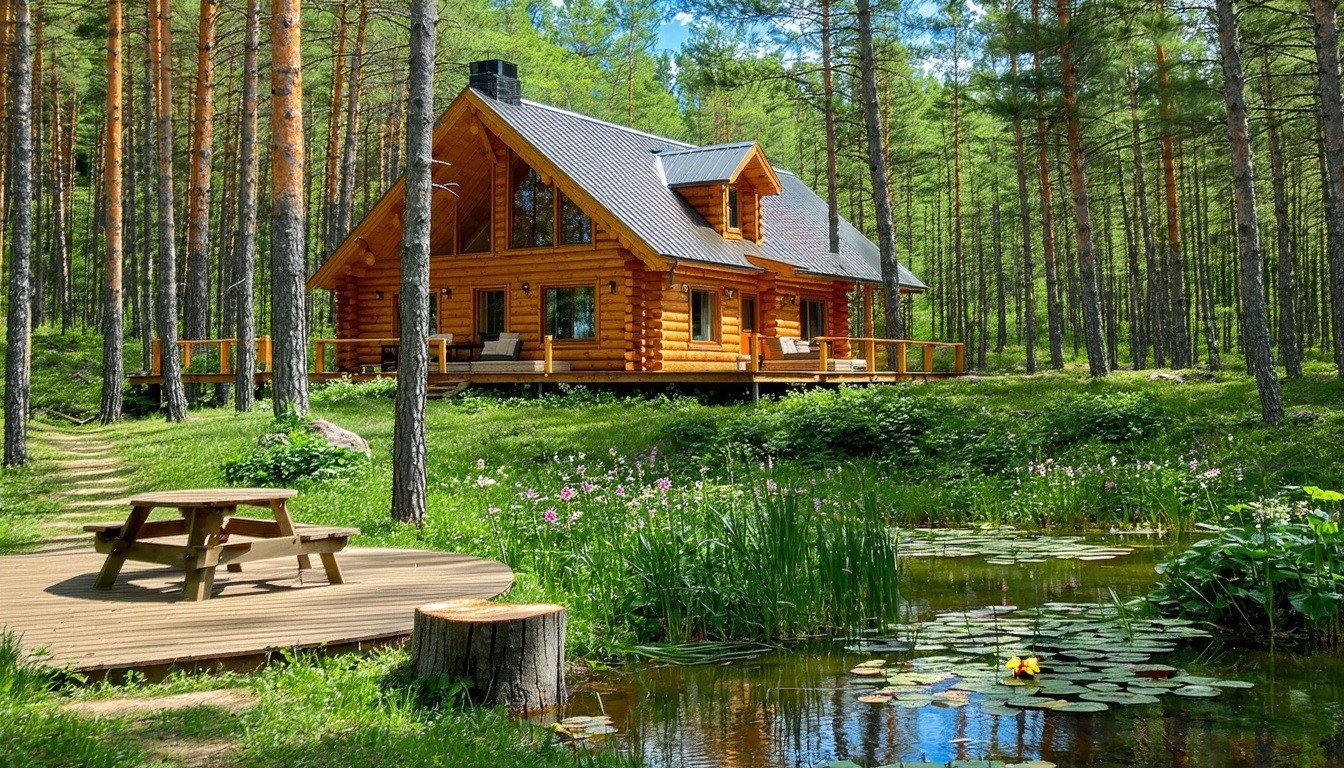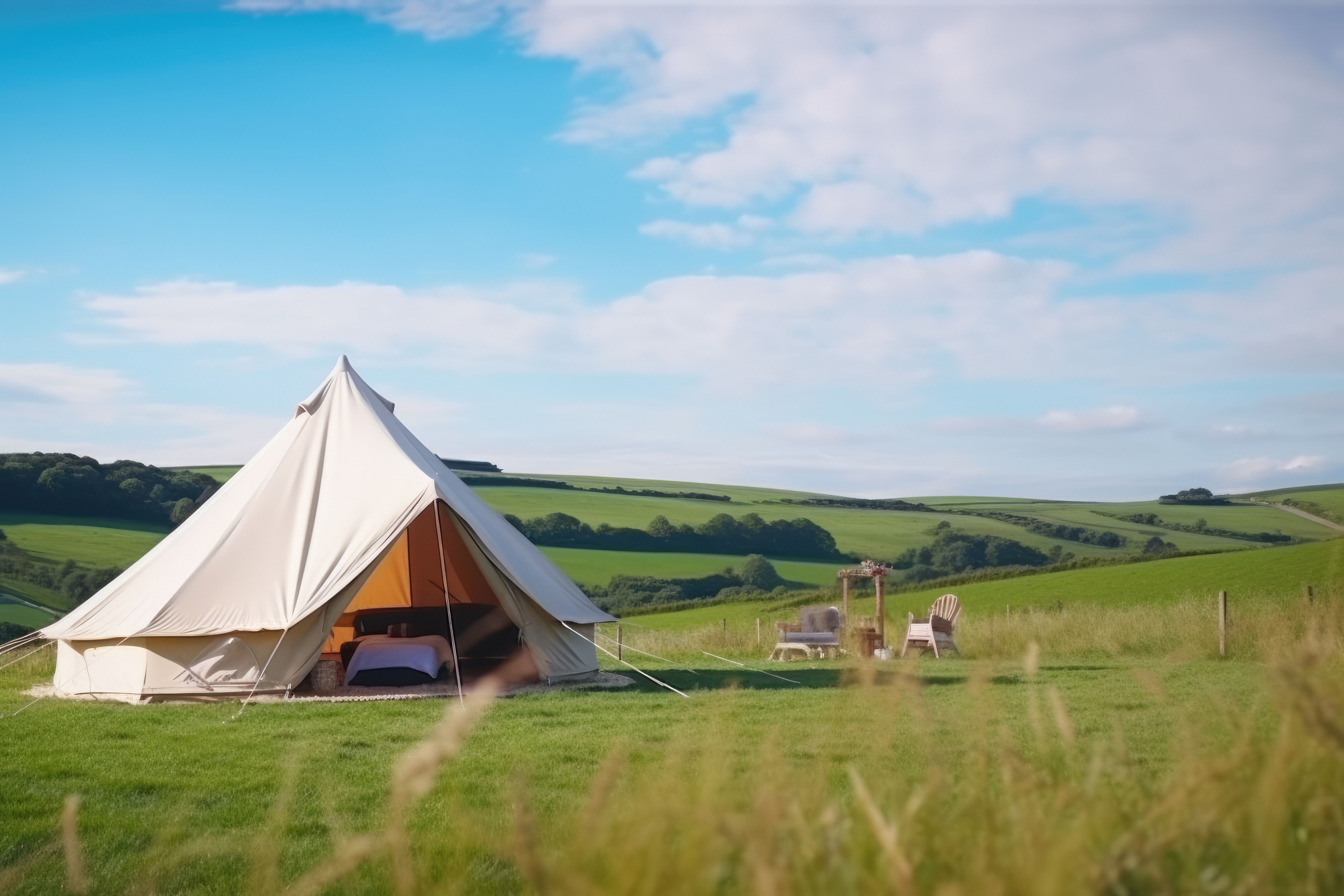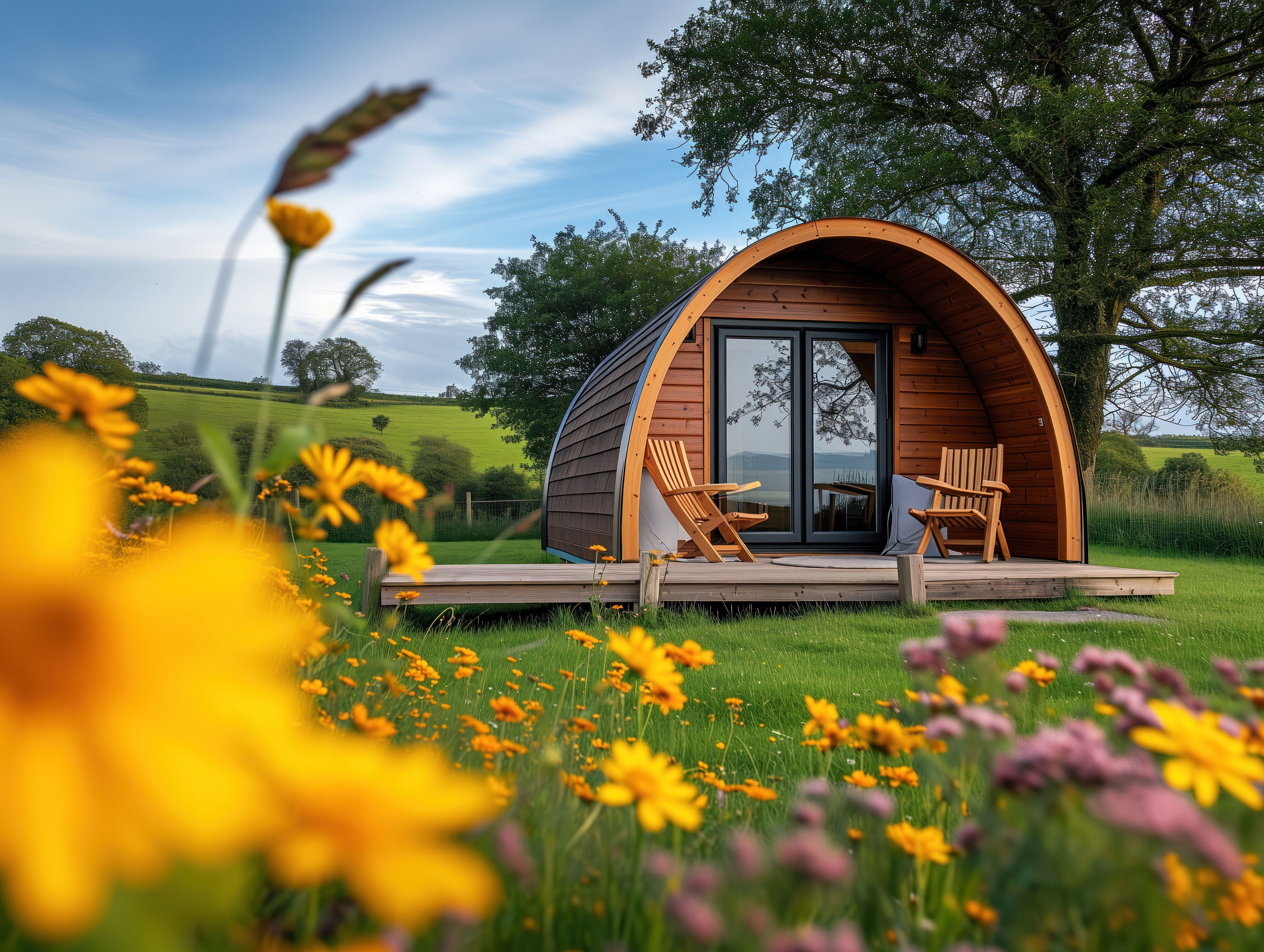If you’ve got land and are looking for ways to create a unique, profitable leisure business, a log cabin holiday venture could be the perfect solution.
Providing rustic charm alongside modern comforts, log cabin sites can tap into a growing demand for nature-based getaways. Below, I’ve outlined the essential steps to help you establish and grow your log cabin holiday business—from evaluating your land to securing the right finance solution.
1. Assess Your Land and Resources
Identify Ideal Locations
Begin by surveying your property to find the most appealing spots for your cabins. Look for panoramic views, woodland areas, water features, or rolling hills that would enhance your guests’ experience. Access to existing tracks or roads can also simplify logistics for both construction and guest arrivals.
Check Utilities and Connectivity
A successful holiday destination requires reliable services such as electricity, water, sewage, and internet access. Modern travellers expect a certain standard of convenience, so ensure your site can support these needs—or plan how to install them effectively.
Consult the Experts
Organisations like the Country Land and Business Association (CLA) offer invaluable resources and advice on using your land for commercial ventures. Consulting with experts early on will help you avoid costly missteps.
2. Planning Permissions and Legal Requirements
Engage with Local Council
Before laying any foundations, research local council regulations and seek their guidance on planning permission requirements. Even if some cabins are considered ‘temporary structures,’ formal approval might still be necessary, particularly if you plan to build permanent facilities (such as washrooms, parking areas, or reception buildings).
Health, Safety, and Insurance
Familiarise yourself with relevant safety guidelines, including fire regulations and environmental responsibilities. Depending on your setup, you may need to consider public liability insurance, employer’s liability insurance, or specialised cover for guest accommodations.
Licences and Certifications
In some cases, you might require specific licences for operating holiday accommodation, selling food and drink, or providing entertainment. Ensuring you have all the right licences up front will help your business run smoothly.
3. Selecting the Right Accommodation
Tailor to Your Target Audience
Whilst log cabins often evoke a sense of rustic tranquillity, modern travellers can have varying preferences. You could opt for:
-
Classic Timber Cabins: Perfect for guests seeking a traditional countryside stay.
-
Contemporary Pods: Ideal for those wanting a minimalist, modern approach.
- Shepherd's Huts: A comfy and cosy type of accommodation.
- Safari Tents or Yurts: A more flexible option if you want an immersive ‘glamping’ experience alongside your cabins.
Decide which style aligns with your brand vision and the atmosphere of your site. You might mix and match different types of accommodation to cater to a wider audience. If you have yet to find a supplier, we have a variety of trusted glamping accommodation suppliers who can talk you through your requirements.
4. Designing Amenities for Comfort
Delivering a Memorable Guest Experience
Today’s travellers expect more than a basic shelter in a field. Consider including:
-
Heating and Insulation: Ensures year-round appeal, even in colder months.
-
High-Quality Beds and Furnishings: Gives guests the feeling of staying in a ‘home away from home.’
-
Private En-suite Facilities: Raises standards, offering convenience and privacy.
-
Kitchenettes and Outdoor Cooking Areas: Encourage socialising with BBQ spaces or fire pits.
-
Outdoor Seating: A simple addition that lets guests soak up the natural surroundings.
Striking a balance between ‘back-to-nature’ simplicity and modern comfort will help you stand out in a competitive market.
5. Marketing and Branding
Unique Selling Points
Highlight what makes your site special—be it breath-taking views, farm-to-table experiences, or proximity to nearby attractions and walking trails. Building a brand that resonates with these qualities will attract your ideal customers.
Online Presence
-
Website and Booking System: Offer an easy-to-use platform where potential guests can check availability and book directly.
-
Social Media and Reviews: Share regular updates on Instagram, Facebook, and TikTok to reach a wider audience. Encourage satisfied visitors to leave reviews on platforms such as TripAdvisor or Google.
-
Partnerships: Collaborate with local tourism boards, restaurants, or activity providers to create package deals and cross-promote one another.
6. Pricing Strategy and Revenue Management
Competitive Research
Investigate other holiday cabin and glamping sites in your region to see their rates and occupancy levels. Use this to position your offering competitively—bearing in mind the quality, uniqueness, and facilities you provide.
Introductory Offers
When you first open, consider running special promotions to attract guests and generate word-of-mouth. Good reviews early on can be priceless for establishing trust and credibility.
Seasonal Variations
Holiday seasons, local festivals, and school breaks can all affect demand. Consider higher rates during peak times and potentially discounted rates during off-peak periods to maintain healthy occupancy levels year-round.
7. Types of Business Finance Available
Funding your log cabin holiday business will be critical to its success. Selecting the right finance solution depends on the scale of your project, its potential returns, and your existing financial position. Common finance options include:
Business Loans
-
Term Loans: Borrow a lump sum to cover the cost of construction and setup, repaying over an agreed period with interest. At Millbrook Business Finance we can arrange loans for £10k and above.
Asset Finance
-
Hire Purchase: Spread the cost of purchasing cabins, pods, and equipment over time, allowing you to manage cash flow effectively.
-
Lease Finance: A solution that lets you use the assets (e.g., cabins) without necessarily owning them outright, enabling you to upgrade more easily as your business grows.
Interested in a deep dive into business finance solutions? Read our “Everything You Need to Know About Business Finance” guide.
Why Use a Business Finance Specialist?
Setting up a log cabin or glamping business can involve navigating a complex range of financial products and lenders. Here’s how working with a finance specialist can help:
-
Tailored Financial Solutions: You’ll receive bespoke finance products suited to your specific requirements, ensuring you choose an option that fits your long-term plans.
-
Access to Multiple Lenders: Specialists often have established relationships across multiple finance providers, helping you secure the best rates and terms possible.
-
Simplified Application Process: They manage paperwork and negotiations on your behalf, saving you time and allowing you to focus on developing your business.
-
Ongoing Support: As your business grows, you may need further funding for expansion. A specialist can guide you through additional finance solutions.
Make an Enquiry Today
Contact Guy McDonald, Glamping Business Finance Specialist
Starting your own log cabin holiday venture can be both rewarding and profitable, provided you lay the right foundations. From securing planning permission to selecting top-quality cabins and amenities—and of course, lining up the right finance—taking these crucial steps now will help ensure your business thrives for years to come.
At Millbrook Business Finance, we tailor financing solutions to meet the unique needs of glamping and log cabin holiday businesses. Whether you’re launching your first set of cabins or expanding an existing site, I’d be delighted to help you secure the best funding available.
-
Call: 0333 015 3301 (ext. 306)
- Read My Other Blogs:







